Is “Progressive Theology” a Religion, or Just a Euphemism for Socialism?
In the name of promoting “Christian ethics,” woke academics peddle Marxist economics to gullible students at high-priced liberal arts colleges. Recent events at Maryville College serve to illustrate this.
Thanks to Real Clear Policy (here), The College Fix (here), and Instapundit (here).
When my wife and I moved to a small town in eastern Tennessee a few months ago, one of the attractions was the beautiful campus of a small private college, 200 years old, affiliated with the Presbyterian Church (USA). Maryville College was founded in 1819 as the Southern and Western Theological Seminary. The red brick buildings and colonial-style architecture of Maryville College convey a sense of tradition, and devotion to the overwhelmingly-conservative local culture. The school’s nickname is the Fighting Scots (a nod to the Scotch-Irish settlers in Appalachia), and some of the older buildings on campus are listed on the National Register of Historic Places.
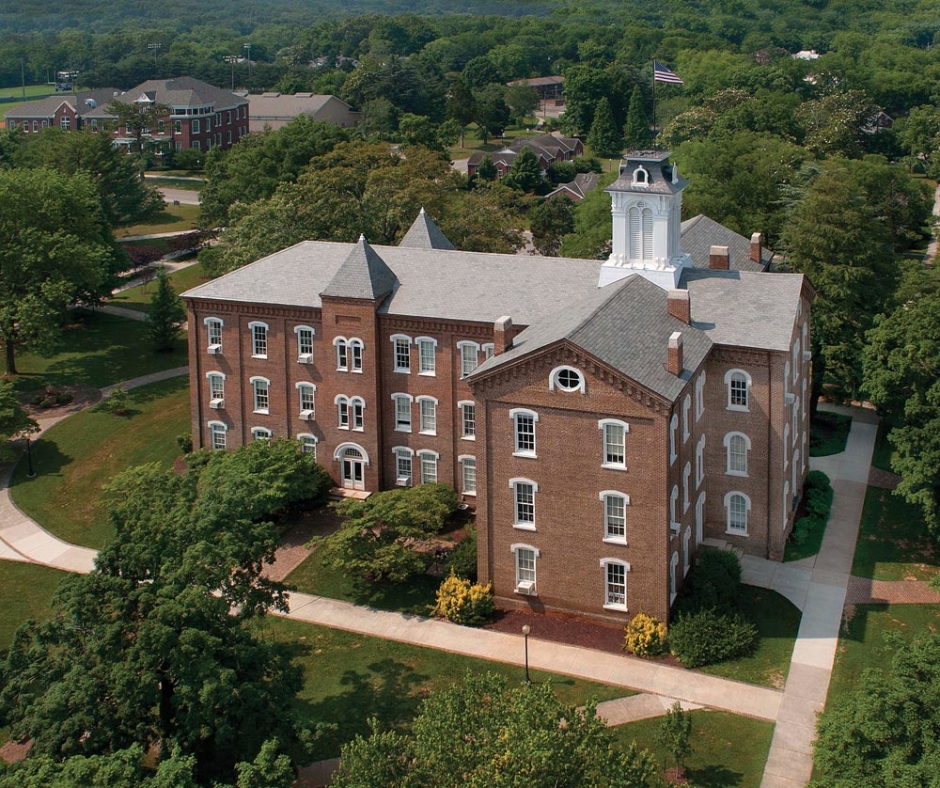
We imagined that Maryville College, which offers a major in religion (among many other subjects),[1] was comparable to Hillsdale College—an island of sanity in a roiled sea of radical ideology in higher education. Alas, Maryville College is not Hillsdale. Its social justice agenda places it closer to Oberlin College on the “woke” continuum. Maryville College disdains capitalism and worships at the altar of Karl Marx.

This revelation dawned on me a few weeks ago as I read in the local paper about an upcoming lecture series being hosted by Maryville College. An article in the Maryville Daily Times, entitled “Hulsether to lead 2020 Cummings Conversations in Maryville,” announced that
Dr. Lucia Hulsether, author and religious studies professor at Skidmore College, will be this year’s guest speaker for “The Margaret M. Cummings Conversations on Faith, Learning and Service,” held March 9-10.
The theme for this year’s lecture series is “Buying, Selling and Doing the Right Thing: Life Under Capitalism.”
During two presentations on campus, Hulsether will use her scholarly research on social responsibility projects such as fair trade, microfinance and impact investing to reflect on what it means to be ethical in a context that is framed by capitalism.
On Monday, March 9, Hulsether will present “Woke Capitalism” at 7 p.m. in the Clayton Center for Arts’ Harold and Jean Lambert Recital Hall.
On Tuesday, March 10, Hulsether will give a talk titled “Total Depravity” at 1 p.m. in the Samuel Tyndale Wilson Center for Campus Ministry.
Both events are free and open to the public.
I learned that the lecture series was named after a beloved former member of the Maryville College faculty, who taught the Bible:
“The Margaret M. Cummings Conversations on Faith, Learning and Service,” or “The Cummings Conversations,” honors Margaret Cummings, who taught Bible and religious education at Maryville College for 29 years.
The annual lecture series was formerly known as February Meetings, which have been held annually at the College since 1877 and have offered the College and local community an opportunity to come together to consider questions of faith and responsible living in the world.
The new name for the series was unveiled in March 2019.
In years past, guest speakers and special music have been highlights of the condensed lecture series, which is open to all members of the College community, people in the area, and visitors, including the College’s Board of Church Visitors.
Past speakers have included Dr. Todne Thomas, a sociocultural anthropologist and professor; Dr. Laura Hartman, author and professor; Katherine Paterson, author of numerous books, including Bridge to Terabithia; Jeanne Bishop, criminal defense attorney, activist and author; Canon David Porter, director of reconciliation for the Archbishop of Canterbury; Randal Jelks, professor, clergyman and writer; Derek Webb, Christian singer/songwriter; and Rev. Al Staggs, minister, actor and comedian.
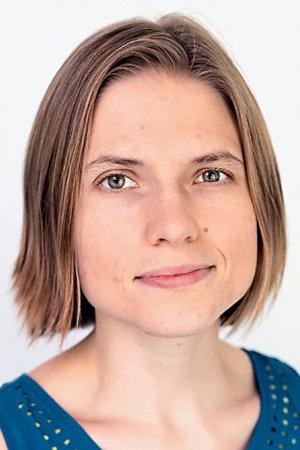
What caught my attention was the identification of the featured lecturer for 2020, Lucia Hulsether. Hulsether was described in the article (which was drawn verbatim from a Maryville College press release) as
a scholar of religion with particular interests in feminist and queer theory; critical race and ethnic studies; and the history of capitalism and labor.
She is an assistant professor of religious studies at Skidmore College in Saratoga Springs, New York.
She grew up in Maryville and holds a B.A. from Agnes Scott College in Atlanta, Georgia.
She also holds a Master of Divinity from Harvard University and a Ph.D. from Yale University.
Her first book, “Liberated Market: On the Cultural Politics of Capitalist Humanitarianism,” explores projects to reform capitalism from within — tracking formations like fair trade, microfinance and impact investing — since 1945.
She is also pursuing projects on the history of citizenship pedagogies in the United States and on the cultures of competitive college debate.
It seemed incongruous to me that a “professor of religious studies” invited to deliver a lecture on faith, at a religious college, would have a “particular interest” in “queer theory.” The article informed readers that “For more information about MC’s Cummings Conversations, please contact Rev. Dr. Anne McKee at anne.mckee@maryvillecollege.edu.” McKee, it turns out, is the Campus Minister at Maryville College, in which capacity she “facilitate[s] the spiritual inquiry and religious life on campus,” by conducting weekly chapel services among other things. McKee’s campus bio states that she also teaches “a course called ‘The Road to Justice’ which considers the history of the civil rights movement and current justice issues.”
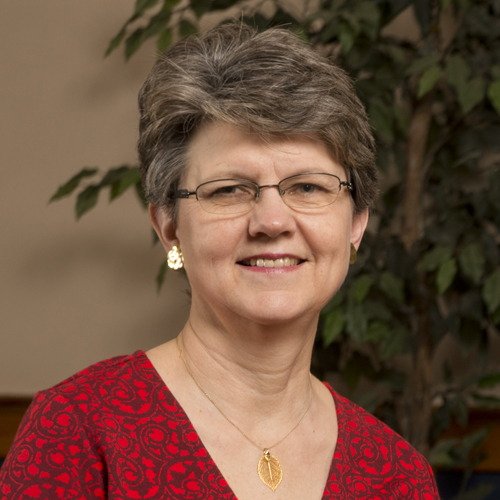
It dawned on me that McKee was first and foremost a social justice warrior, explaining the unusual selection of a “queer theory” scholar to deliver a lecture on religion. I discovered, moreover, that Hulsether is McKee’s daughter, adding nepotism to ideological favoritism as part of the motivation.
We attended Hulsether’s lecture on March 9, which was held on the Maryville College campus in a building (the Clayton Center) named for a major corporate benefactor, Clayton Homes, a nationwide builder of modular homes headquartered in Maryville, now part of Warren Buffett’s Berkshire Hathaway, Inc. Hulsether’s mother, Rev. McKee, an ebullient woman who could be a stand-in for Elizabeth Warren, welcomed the audience. Hulsether’s hour-long lecture—given, remember, in a series named after a former Bible teacher named Margaret Cummings–did not mention God, the Bible, the teachings of Jesus Christ, or even the subject of religious faith. It did, however, repeatedly mention Karl Marx.
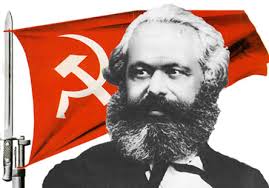
Hulsether’s lecture consisted of a simplistic presentation of the Marxist exploitation theory of labor (arguing that an employer’s payment of money for another’s labor was “de-humanizing,” etc.) and suggesting that all free-market exchange was inherently oppressive. Affluence is the result of inequity and a manifestation of privilege. Consumerism is vile. Capitalism, in short, is laden with predation, abuse, selfishness, and exploitation. The message was that ethical Christians should reject capitalism as a loathsome system. Aside from Hulsether’s pretentiously-flowery language, the rhetoric was straight out of a union organizer’s script or a Bernie Sanders campaign speech.
Hulsether’s sanctimony was as pronounced as her naïveté. The choice is not between imperfect capitalism and the utopian notion of boundless prosperity, but between capitalism and its real-world alternative: a command economy that inevitably leads to scarcity, poverty, and misery. If socialism magically solved all economic problems, Venezuela would be nirvana; instead, it is an impoverished hell hole. Capitalism, for all its perceived faults, was a huge improvement over the squalor and destitution that characterized pre-industrial societies.
What are Hulsether’s qualifications to condemn the economic system that has produced the highest standard of living in world history, extended life expectancy, reduced disease, and fostered life-changing technological innovations? She is not an economist. Hulsether teaches “religious studies” at Skidmore College.[2] Her graduate degrees (an M.A. and Ph.D. From Yale) are in “religious studies.” She also has an M.Div. from Harvard Divinity School and a B.A. in Religious Studies and Sociology/Anthropology from Agnes Scott College.
In her telling, “religious studies” includes everything except conventional theology: “My teaching is inseparable from a larger intellectual project to understand concepts of value and structures of desire that shape communities both present and past. In the community that is the college classroom, I recognize all participants as teachers and learners, while fostering interpretive skills that prepare students to gain confidence as creators of knowledge, themselves. I teach courses that traverse fields of American studies; the critical study of ethnicity, race, and migration; women’s, gender, and sexuality studies, and religious studies.”
Given the leftist orientation of her primary areas of academic interest— “the history of capitalism and labor; religion in the Americas; feminist, queer, and critical race theory”—one may wonder why she didn’t concentrate in some other (and more conventional) social science discipline, such as sociology, history, social work, or economics. She answered this question in an interview:
I try to work at the intersection of critical ethnic studies, history of capitalism in the Americas, and queer and feminist critique. How did I end up in a religious studies department? The simplest answer is that I have often found excellent mentors and intense, interdisciplinary conversation partners in departments organized under the heading of religion. I also think that religion offers a unique angle into and a decent umbrella over the concerns I’ve named. I have come to think of religion as the question of how people dream of alternative worlds, and then strive—tragically, comically, unconsciously, maybe with success, more likely with harrowing consequences—to make those worlds concrete, to suture dreams to bodies, to legislate difference. Those dreams, those worlds, and the blurriness that sabotages my linguistic parsing of the two hinge on—and are unhinged by—regimes of race, gender, and sexuality. (Emphasis added.)
In other words, “religious studies” is the perfect woke discipline–broad enough to encompass all the identity politics, social justice, and other progressive trends that enthrall leftist academics, but with a seemingly neutral (and mainstream) label. Left-wing polemics without the rigor of typical academic disciplines. Implicitly, academics carrying the banner of “religious studies” purport to transcend worldly discourse; they claim divine inspiration.

Credulous students, many raised in religious households, are inclined to give undue fealty to aggressive ideologues preaching the “social gospel.” “Religious studies” is a Trojan Horse for radical activism. It is Saul Alinsky posing as Mother Theresa. Che Guevera wearing a clerical collar. “Religious studies” sounds benign—even respectable—invoking images of Billy Graham, Jerry Falwell, or similar evangelicals familiar to southern Protestants. Nothing could be farther from the truth. The radical ideology being espoused by some academics in the guise of “religious studies” is highly disturbing.
As it turns out, “religious studies” has nothing to do with religion. It is ideological indoctrination under false pretenses. Contrary to the Commandments forbidding theft and the coveting of thy neighbors’ goods, woke academics hiding behind the façade of religion urge confiscatory taxes and the redistribution of income and wealth. Heterosexuality and traditional morality are eschewed in favor of “queer studies.” Despite the biblical admonition “Thou shalt not kill,” leftist “religious” scholars advocate for abortion instead of pro-life. Fidelity to law is scorned in lieu of civil disobedience and helping illegal immigrants cross our borders with impunity. Employers’ property rights and economic liberties are subordinated to the goals of organized labor.
Hulsether herself has condemned her public high school for celebrating “white supremacy” because the Maryville High School’s mascot is the Maryville Rebels; praised her youth pastor for violating federal law to oppose “militarism”; advocated open borders; and criticized policies that oppose labor unions—all in the name of “progressive Christianity.” “Pluralism is a Trojan horse for U.S. military and economic imperialism,” she asserts. Hulsether believes that that racism and sexism are “rampant” throughout our society, including—incredibly—the Ivy League graduate schools she attended. In the obtuse and jargon-laden prose she learned in graduate school, Hulsether confirms her antipathy for American exceptionalism:
If the soil is poisoned; if an army occupies the territory; if the homeland’s police gun down the populace; if the wealthy hoard the resources; if the perpetrators and guilty bystanders describe ourselves as pluralists; if we cannot hear the calls of those who point us to our faults—of what pluralism do we speak?
Hulsether has suggested that laws protecting the religious liberties of businesses and individuals, such as Hobby Lobby or Colorado cake baker Jack Phillips, constitute “Jim Crow–style discrimination against gay people.” In a Salon article that was overly sympathetic to the Boston Marathon bombers, Hulsether revealed the extent of her doctrinaire hostility to American institutions:
We’ve become unwitting participants in discourses that undergird the systemic violence that continues to structure our world—and this is not necessarily the violence of those deemed “extremist” in the mass media. At least recently, mainstream appeals to “interfaith cooperation” often have functioned to excuse an exceptionalist ideology that deepens ruts in a two-tiered legal system and sanctions US military presence abroad.
This is not religion, or even religious studies. This is leftist politics, socialist economics, anti-American slogans, and the latest post-modern academic theories masquerading as piety and spirituality. Ideologues are entitled to agitate. This is a free country, after all. But it is mendacious—and fraudulent—to call this type of subversive rhetoric “religious studies.” Cloaking leftist activism and identity politics in the mantle of spirituality and religiosity is bogus. It exploits the altruism of gullible students in order to recruit them into the ranks of social justice warriors.
“Religious studies” is a wolf in sheep’s clothing. Well-intentioned parents hoping to send their college-age children to a school in an idyllic setting sheltered from the agitprop posing as pedagogy in higher education today may be lured into thinking that Maryville College—tucked away in a sleepy corner of eastern Tennessee–is a “safe” choice. They would be wrong. The school is an imposter. The serene exterior of Maryville College’s campus masks a Potemkin Village of radical activism. A red fist concealed in a velvet glove. Parents seeking a Hillsdale-type education for their children should send them to Hillsdale, not Maryville.
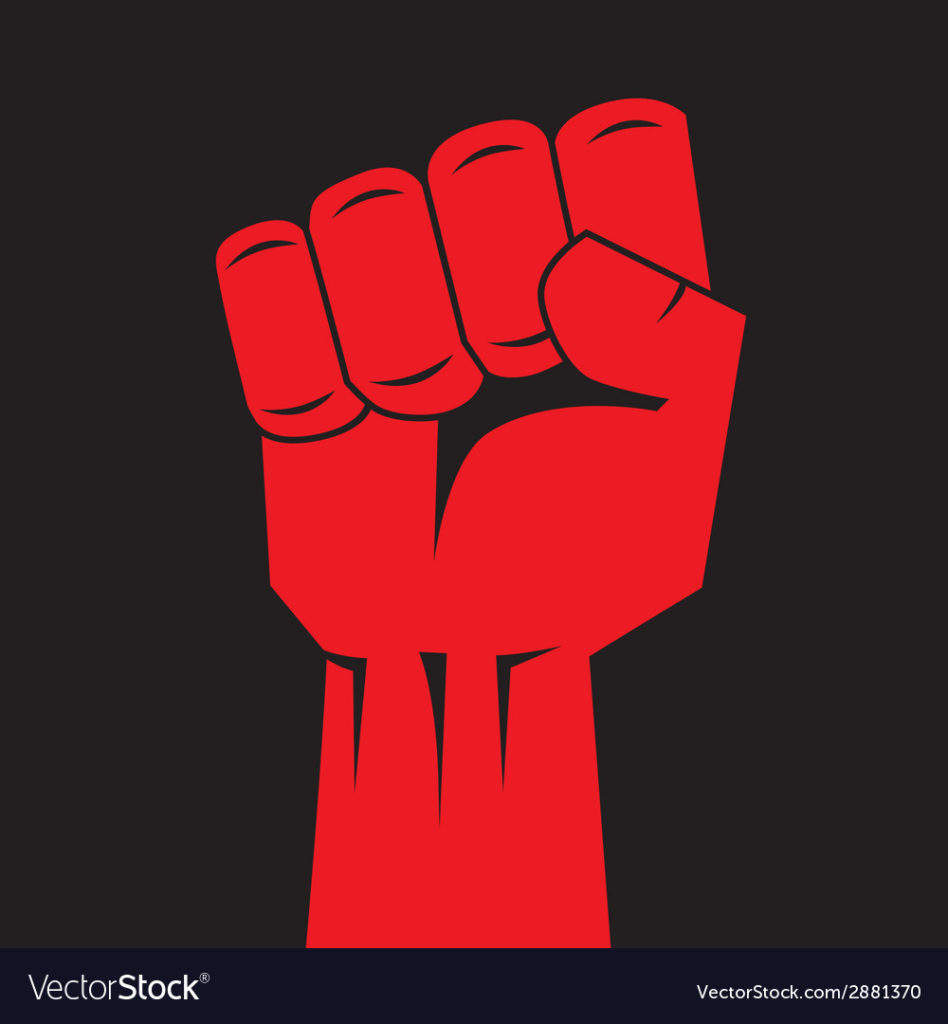
1. “Religion” as a major at Maryville College departs dramatically from the school’s origins as a Presbyterian seminary. Now, “[s]tudying religion at Maryville College means learning to understand a complex and rapidly changing world. Religion majors grapple with enduring questions about what it means to be human and they study the rich variety of responses that different human cultures have produced, from the Bible to the teachings of the Buddha. But studying religion also means seeking meaning in the world today: it means contemplating your own place in the universe, understanding why some religious people commit their lives to social justice and others commit violence, examining religious pluralism in the United States, and traveling to any number of our study abroad sites–from India to Argentina to Ghana–to encounter new religious worlds. And religion majors learn skills that are most prized by today’s employers: independent research, precise speaking and writing, and an understanding of diversity.” In other words, “religion” is synonymous with leftist activism.
2. “Religious studies” at Skidmore, devoid of any references to God, resemble sociology: “The Religious Studies Department at Skidmore is committed to being an inclusive learning community, seeking to both broaden intellectual horizons and represent a range of identities among its faculty, staff, and students. We firmly believe that the study of religion fosters deep intercultural and global understanding, which in turn encourages and enables informed, responsible citizenship. Our aim, in the topics we address and in the people we hire, is to further a robust and enlightening conversation about how religions shape the world we share. We thus invite persons of any faith, class, race, ethnicity, gender identity and expression, sexual orientation, national origin, age, or ability to join us in that conversation.”

































